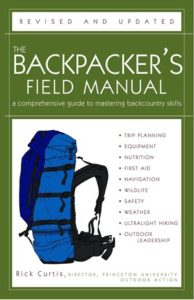by Seth Hawkins MD
This article was originally published in the October 2015 issue of Emergency Medicine News
Vol. 37 – Issue 10: p 29
reprinted with permission
I’d like to establish a new tradition: the Words Matter crap list. I envision this as a growing catalogue of those words that are, well, crap for those who care about the use of medical language. In keeping with the #wordsmatter principle, the term crap list is carefully chosen. As other bloggers have noted (https://bit.ly/1DQcYI7), crap holds a fascinating place in the hierarchy of a not quite profanity but not quite appropriate either.
My wife and I have an ongoing debate about this, particularly because it’s become one of the favorite words of our three boys, ages 8 to 15. It grates on my sensibilities as a product of 1970s child-raising, but she is more accepting of a new era of tolerance in children. For the purposes of our crap list, the term is safe enough for publication but edgy enough to get your attention.
The terms on my crap list are bad enough, dangerous enough, and yes, crappy enough that we need to draw some attention to them. The semantic and symbolic differences between crap and its more profane cousin are fascinating, so suffice it to say that the etymological origin of crap is from the Latin meaning trash or refuse (later variations corrupted it to mean human waste). In that context, we sometimes talk about trash-can diagnoses. In a similar way, here are crap terms that the medical world would be wise to abandon.
Non-acetaminophen and non-aspirin: I see this all the time as a supposedly legitimate and helpful description of the pharmacological contents or over-the-counter medications, except that it is neither. The U.S. Food and Drug Administration identifies 300,000 over-the-counter medications.
This labeling is helpful in eliminating the possibility that it is one of those, leaving 299,999 other possibilities. Asking a patient what he took and being told non-acetaminophen is about as helpful as asking him when his chest pain began and being told about the time Uncle Slim fed the dog. When did it become legitimate or helpful to label drugs only by what they are not? When we are counseling patients about tPA, would we ever lead by saying, it’s non-penicillin?
A drug should be defined by what it is. Non-acetaminophen and non-aspirin are crap definitions of a drug’s pharmacological contents.
Baby aspirin: It’s low-dose aspirin, folks, not baby aspirin. I hear 81 mg (or 75 mg internationally) doses of aspirin called baby aspirin all the time by patients and, even more sadly, by health care providers.
This is cute, charmingly colloquial, and harmless, except for the unfortunate fact that aspirin is contraindicated in babies. Unless you’re dealing with Kawasaki’s disease, this is dangerous crap terminology, for sure, and given our emphasis on preventing medical error via terminology, it is amazing it has persisted as long as it has. Promoting or even tolerating a term like baby aspirin is like calling the deepest end of a pool the non-swimmer end. Speaking of which ….
Near-drowning: The 2002 World Congress on Drowning in Amsterdam recommended that this terminology no longer be used, and that principle was adopted by nearly every international consensus organization since, but this term is still ubiquitous in popular and scientific dialogue. More recently, a hilarious contortion has developed where publications will acknowledge the term does not exist, while continuing to use it throughout an article.
This would represent a fascinating case study in how to change medical terminology (illuminating that it’s really hard) if the term weren’t so clinically dangerous and epidemiologically destructive. In what other condition except maybe syncope do we exclude everyone who survives that condition from the study? Did people who survive heart attacks experience near-MI or those who survived pneumonia experience near-pneumonia? Obviously not. Drowning is a single clinical and epidemiological diagnosis representing the process of respiratory impairment from submersion in a liquid, with results being drowning with morbidity, drowning without morbidity, and drowning with mortality (fatal drowning). For those interested in a more complete discussion of drowning terminology and its modern simplification, read the excellent discussion by emergency physician Justin Sempsrott, MD (Starfish Aquatics Institute, Lifeguards Without Borders) in Wilderness Medicine magazine. (https://bit.ly/1HHqWXg.)
EKG: It is possible that Alexander Muirhead, a British electrical engineer, may have recorded a human electrocardiogram at St. Bartholomew’s Hospital in 1869, but he allegedly did not publish the results for fear of misleading others. If so, this is a tragic case of overzealous care with words (we could use more of this in our drowning terminology) because discussion in English of electrocardiograms would have evolved from the 19th century with more correct acronyms.
In another chance at establishing correct acronymic terminology in English, British physiologist Augustus D. Waller, MD, of St. Mary’s Medical School in London, was the first to publish a human electrocardiogram in the Journal of Physiology in 1887, although he used the terminology electromotive and electrometer, not electrocardiogram. Dutch physiologist Willem Einthoven saw him demonstrate this new technology on a dog in 1889 at that year’s International Congress of Physiologists in Bale. Four years later, Einthoven introduced the term electrocardiogram at a meeting of the Dutch Medical Association.
He attributed its origin to Dr. Waller, but he was writing and publishing in Dutch, and electrocardiogram became elektrocardiogram. Later authors, including English ones, shortened this to EKG, despite the fact that the English acronym would be ECG, and despite the fact that indeed this was a British invention and term, not a Dutch one. Subsequent authors perpetuated the Dutch terminology of EKG, even in English.
In more recent days, this was defended because it was felt ECG would be too confusing with other technology, including EEG (for electroencephalogram) or echocardiogram. A medical community that feels it cannot differentiate EEG and ECG should do away with acronyms altogether, one would think, or at least explain why baby aspirin is an acceptable and intuitive term for a drug that should never be given to babies, while we need to turn to the otherwise medically obscure Dutch language to differentiate medical technologies that are intuitively quite different.
Please share what is on your #wordsmatter crap list of medical terminology by writing me at [email protected]. There is sure to be a Volume II published soon, and we’ll include your crappiest terms, with the goal of using language as it is intended: to improve and clarify, not complicate, our shared communication.


